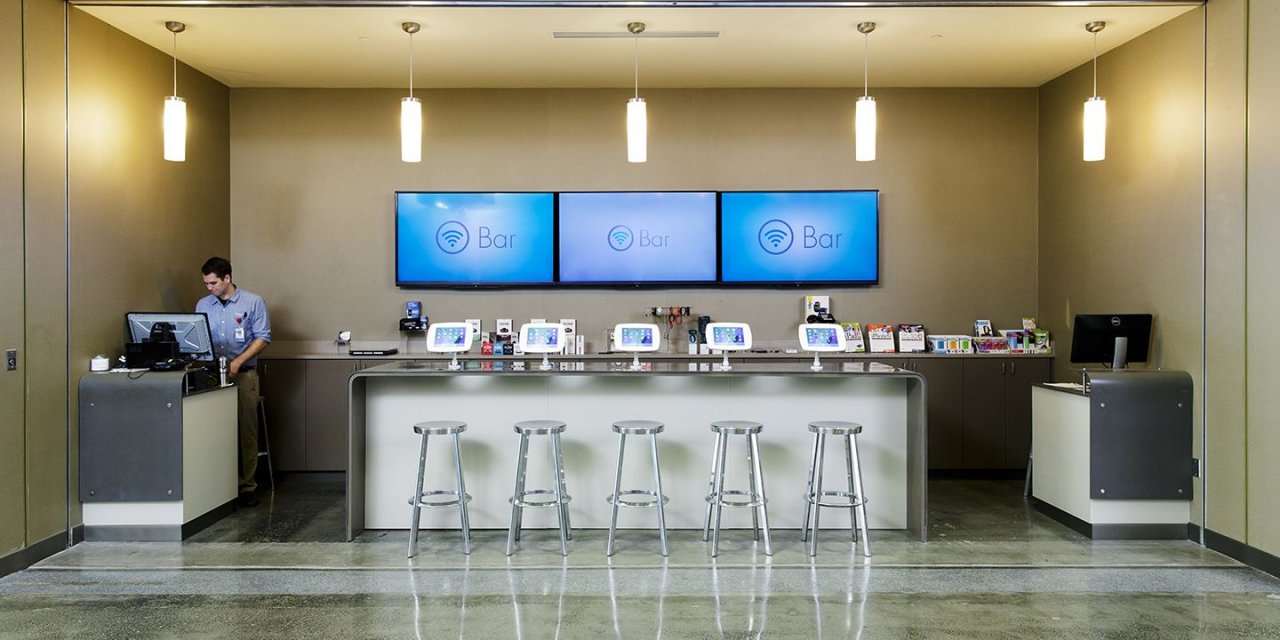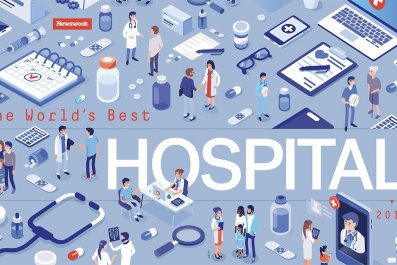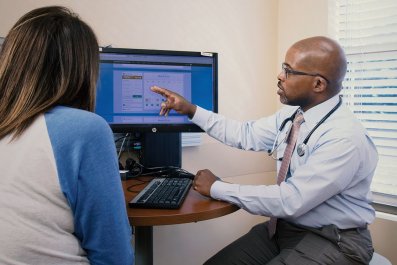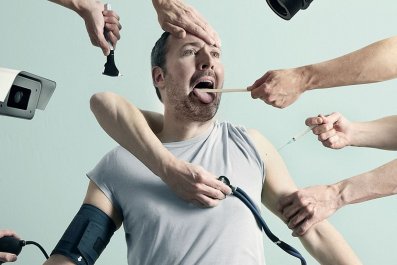
Thousands of people with uncontrolled blood pressure are having their vital signs monitored remotely by doctors at Ochsner Health System, an academic medical center in New Orleans. Patients are sent home with a smartphone app and a wireless, automatic blood-pressure cuff. If the readings start to climb, someone from Ochsner's team gets in touch.
Compared with conventional treatments, the program has more than doubled the rate at which patients keep their blood pressure under control. "The digital program was cheaper, more convenient and had better outcomes," says cardiologist Richard Milani, the medical center's chief clinical transformation officer. "We're doing what you can't do in a 15-minute office visit." Newsweek contributor David H. Freedman talked with Milani about the program and the advantages of digital health.
Where does the current health care system fall short in dealing with chronic disease?
It's an analog, acute-care system, good for fixing pneumonia or trauma. It wasn't designed to manage chronic disease. If you come in with diabetes, a physician will examine you, talk with you, measure your blood sugar and use that information to make an assessment—you're doing great, or we need to add a medication, or some other change. But what if I could flip that script by collecting the information I need to make an assessment from the patient's home? Then I can keep an eye on the patient in a continuous fashion and call you if there's a lack of progress. That's what we do in our digital program. If I can keep your disease under control, there'll be less utilization of the system and lower cost.
How are patients in the digital programs reacting?
We've found patients really like having the higher level of accountability. If you or I go to the doctor today, we get advice about diet and exercise, see you back in six months. That's like homework: You'll worry about it when it's almost due, five months from now. In our program, patients know we're noticing how they're doing. They find that comforting, and that helps improve adherence. They get that feedback from seeing their numbers; it gets them involved in their own care.
A lot of this is about changing patients' behavior. But physicians today aren't well trained in behavior change; they're trained to tell you what's harming you and what you need to do about it. We know from behavioral science that just giving someone information rarely changes their behavior. In our digital programs, we allow the doctors to unload that job to a dedicated team of coaches. They work with patients to set goals, and then they get to accumulate data on the patients in real time so they can act on it and focus the intervention based on what will most benefit each individual patient.
Do you have evidence that the outcomes are better?
With 5,000 patients now in our program, we're achieving double or triple the rates of controlling the disease, compared to ordinary care. Patients are reporting better adherence to treatment. They're not missing work or school to come in for a visit, looking for parking, waiting in the waiting room. The only complaint I've gotten is: What took you so long?












